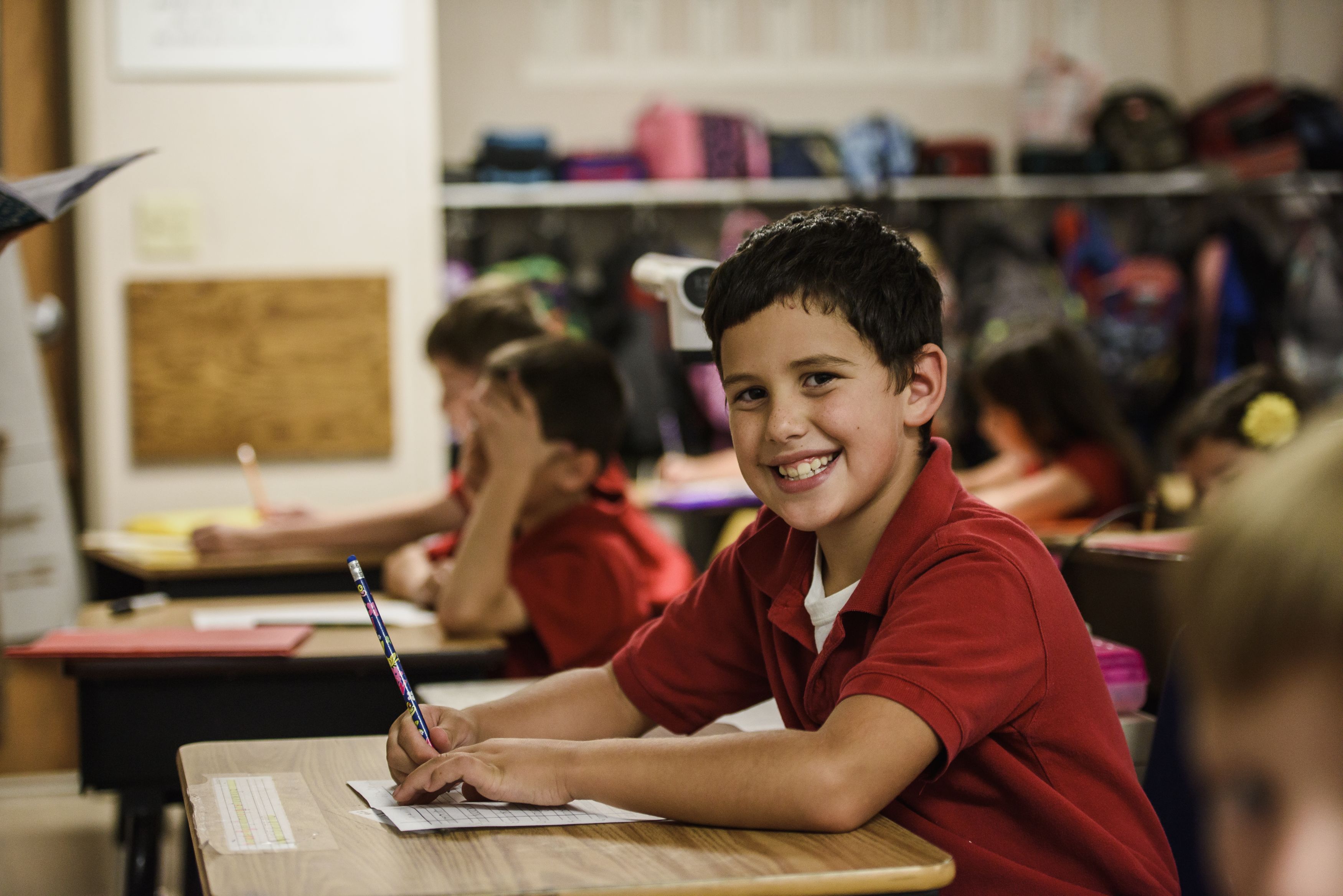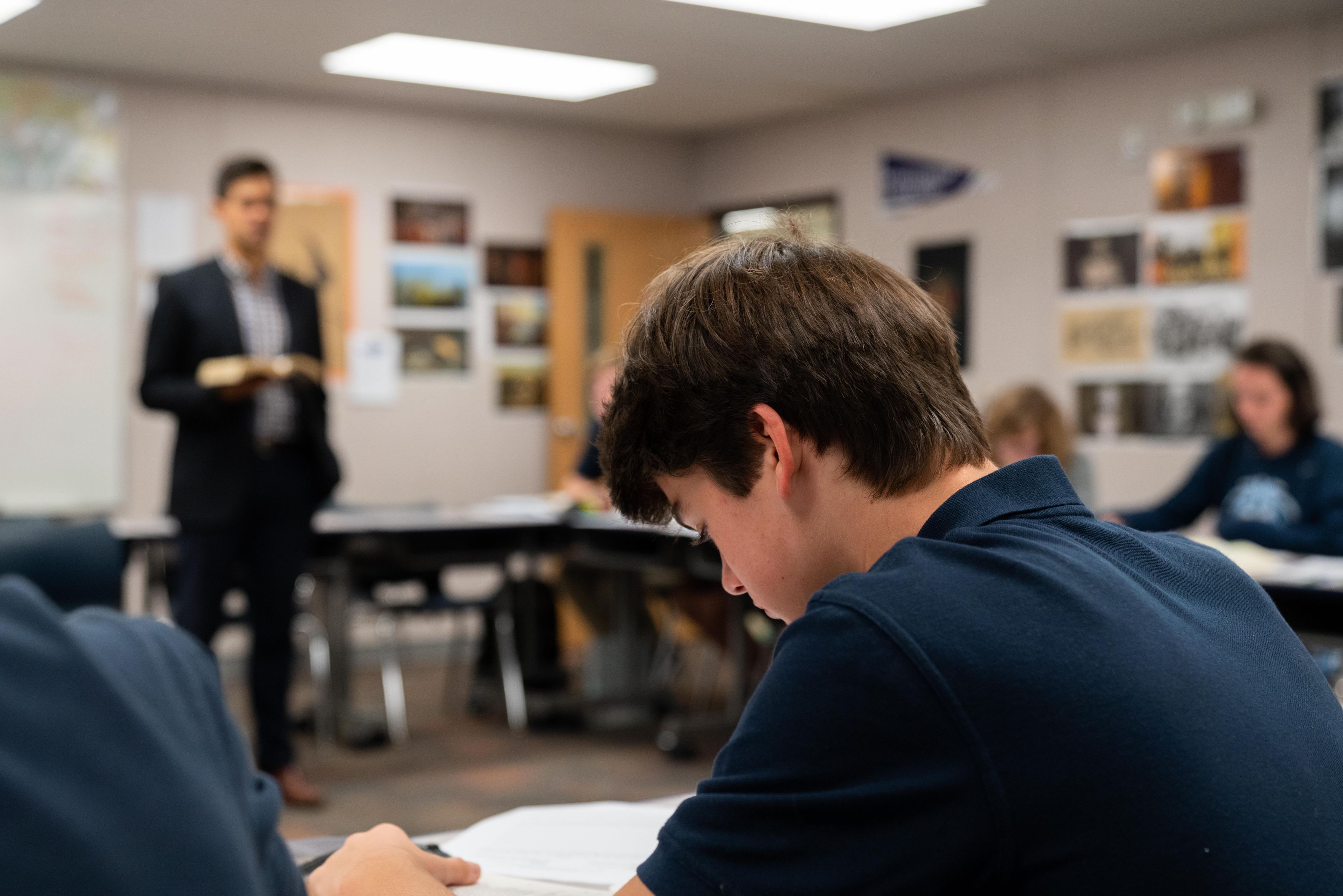Drawing on the Wisdom of Ages
Classical education is a term to describe the time-tested curricula, materials, and methods traditionally used to educate our youth, build our nation, and establish Western civilization. A classical education emphasizes a content-rich and well-balanced course of study, human virtue and moral character, and responsible citizenship through teacher-led classrooms. Garden State Classical Academy’s curriculum focuses on the four disciplines of math, science, literature, and history, with daily attention to art, music, physical education, and foreign language. We intentionally return to the fundamentals of teaching and learning as they were meant to be.
Classical Education is also an educational philosophy that guides students through cognitive developmental stages by studying the works that have stood the test of time and incorporating a highly language-intensive format. Classical education is effective primarily due to its approach and how students are taught. Students learn in three stages or phases (grammar, logic, and rhetoric), known as the trivium. Each subject is approached in this distinctive and thorough way.
Classical education cultivates students to become rational and independent thinkers so they can see the world clearly by revealing our true nature and what is right and good.
Grammar Stage

(Kindergarten-5th)
During this developmental stage, the goal is to build a foundation for future learning by establishing a knowledge base. Younger children thrive academically with this format because they are naturally prone to memorizing content through songs, chants, and rhymes.
Logic Stage

(6th -8th)
This stage builds upon the grammar stage and teaches students how to organize and evaluate existing logical arguments. Middle school students developmentally begin to question authority and facts; they are very interested in the “why” of something. Classical education capitalizes on this stage by teaching reasoning, informal and formal logic, and how to argue with eloquence and wisdom.
Rhetoric Stage

(9th-12th)
In this stage, students learn how to express their thoughts effectively by using knowledge gained during the grammar stage and the tools developed during the logic stage. The art of rhetoric is the craft of persuasive speaking and effective writing, which results in students properly connecting with their audience. Rhetoric students learn how to generate their own written and oral arguments.
Modern vs. Classical Education
Modern education emphasizes preparing students for the workplace, while classical education focuses on preparing them for life. What distinguishes the two approaches?
To succeed in the workplace, individuals need specific skills and knowledge. For example, a successful accountant requires proficiency in numbers and flowcharts, while a successful lawyer must have a solid understanding of case law and statutory regulations. Advanced skills and knowledge build upon foundational ones; every accountant begins with arithmetic, and every lawyer starts with grammar. In this way, everything learned in school is aimed at preparing students for the next step in their educational journey, ultimately leading to their future careers.
In contrast, classical education seeks to help students learn how to direct their own education. Here, too, there is a forward-looking perspective. All education serves as preparation, but what exactly are classical educators preparing their students for? They aim to equip students for a life filled with purpose and meaning. This approach recognizes that each student is unique, created in the image of God, with different strengths and weaknesses that develop at varying rates. It places trust in a Creator who embodies goodness, truth, and beauty, calling each individual to live in a manner that honors these principles. Classical education encourages students to connect their learning with their life's purpose.
Ultimately, what classical schools strive to impart to their students are habits that must be cultivated today to take root tomorrow. Because classical educators have a broader understanding of a child's future and a more comprehensive view of the preparatory aspects of education, the daily activities in a classical school hold an intrinsic value, often absent in modern educational settings.
“For the sole end of education is simply this: to teach men how to learn for themselves; and whatever instruction fails to do this is effort spent in vain.”
- Sayers, The Lost Tools of Learning

